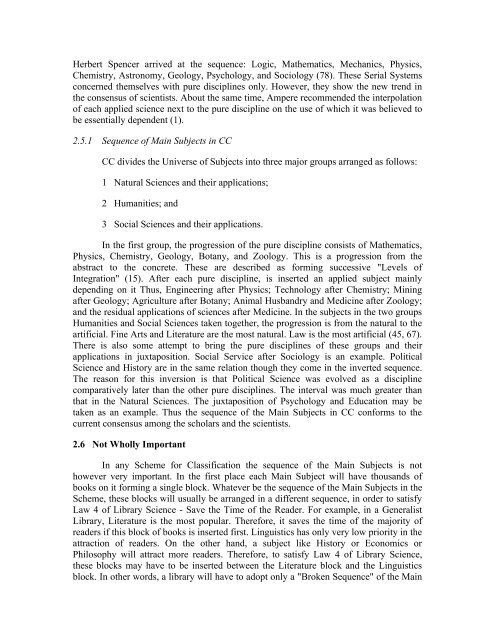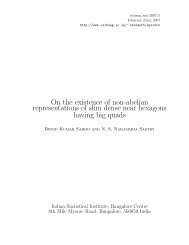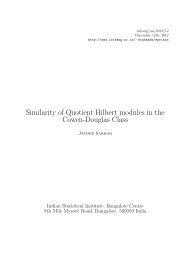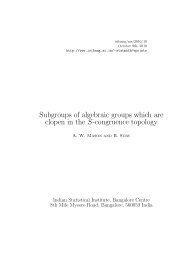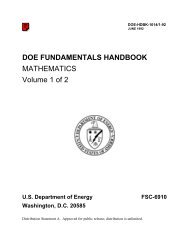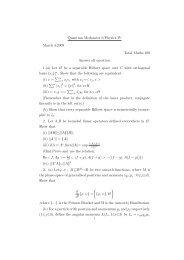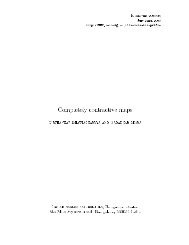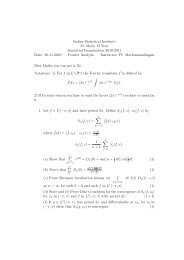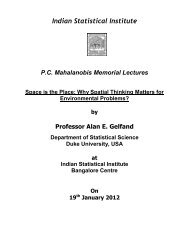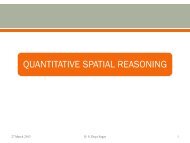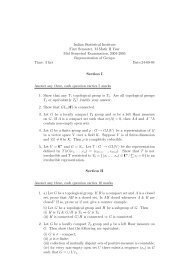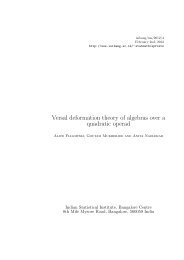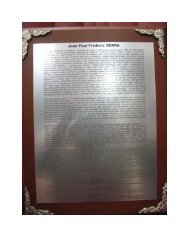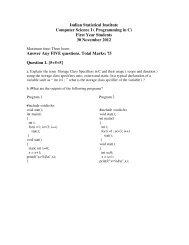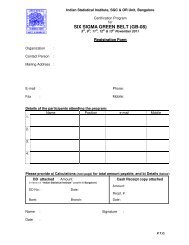CHOICE OF SCHEME FOR CLASSIFICATION - Indian Statistical ...
CHOICE OF SCHEME FOR CLASSIFICATION - Indian Statistical ...
CHOICE OF SCHEME FOR CLASSIFICATION - Indian Statistical ...
Create successful ePaper yourself
Turn your PDF publications into a flip-book with our unique Google optimized e-Paper software.
Herbert Spencer arrived at the sequence: Logic, Mathematics, Mechanics, Physics,<br />
Chemistry, Astronomy, Geology, Psychology, and Sociology (78). These Serial Systems<br />
concerned themselves with pure disciplines only. However, they show the new trend in<br />
the consensus of scientists. About the same time, Ampere recommended the interpolation<br />
of each applied science next to the pure discipline on the use of which it was believed to<br />
be essentially dependent (1).<br />
2.5.1 Sequence of Main Subjects in CC<br />
CC divides the Universe of Subjects into three major groups arranged as follows:<br />
1 Natural Sciences and their applications;<br />
2 Humanities; and<br />
3 Social Sciences and their applications.<br />
In the first group, the progression of the pure discipline consists of Mathematics,<br />
Physics, Chemistry, Geology, Botany, and Zoology. This is a progression from the<br />
abstract to the concrete. These are described as forming successive "Levels of<br />
Integration" (15). After each pure discipline, is inserted an applied subject mainly<br />
depending on it Thus, Engineering after Physics; Technology after Chemistry; Mining<br />
after Geology; Agriculture after Botany; Animal Husbandry and Medicine after Zoology;<br />
and the residual applications of sciences after Medicine. In the subjects in the two groups<br />
Humanities and Social Sciences taken together, the progression is from the natural to the<br />
artificial. Fine Arts and Literature are the most natural. Law is the most artificial (45, 67).<br />
There is also some attempt to bring the pure disciplines of these groups and their<br />
applications in juxtaposition. Social Service after Sociology is an example. Political<br />
Science and History are in the same relation though they come in the inverted sequence.<br />
The reason for this inversion is that Political Science was evolved as a discipline<br />
comparatively later than the other pure disciplines. The interval was much greater than<br />
that in the Natural Sciences. The juxtaposition of Psychology and Education may be<br />
taken as an example. Thus the sequence of the Main Subjects in CC conforms to the<br />
current consensus among the scholars and the scientists.<br />
2.6 Not Wholly Important<br />
In any Scheme for Classification the sequence of the Main Subjects is not<br />
however very important. In the first place each Main Subject will have thousands of<br />
books on it forming a single block. Whatever be the sequence of the Main Subjects in the<br />
Scheme, these blocks will usually be arranged in a different sequence, in order to satisfy<br />
Law 4 of Library Science - Save the Time of the Reader. For example, in a Generalist<br />
Library, Literature is the most popular. Therefore, it saves the time of the majority of<br />
readers if this block of books is inserted first. Linguistics has only very low priority in the<br />
attraction of readers. On the other hand, a subject like History or Economics or<br />
Philosophy will attract more readers. Therefore, to satisfy Law 4 of Library Science,<br />
these blocks may have to be inserted between the Literature block and the Linguistics<br />
block. In other words, a library will have to adopt only a "Broken Sequence" of the Main


